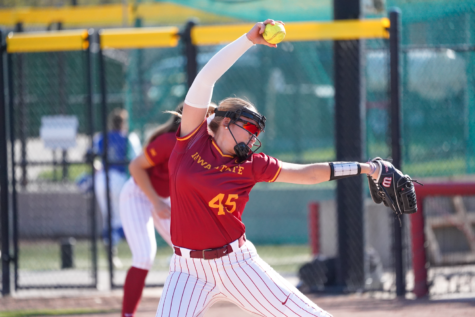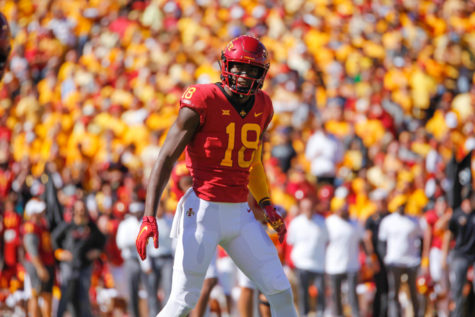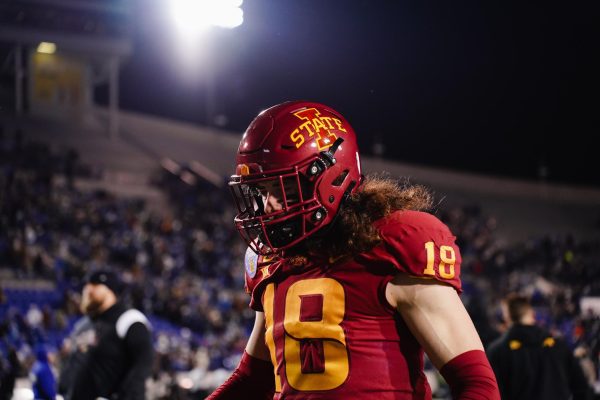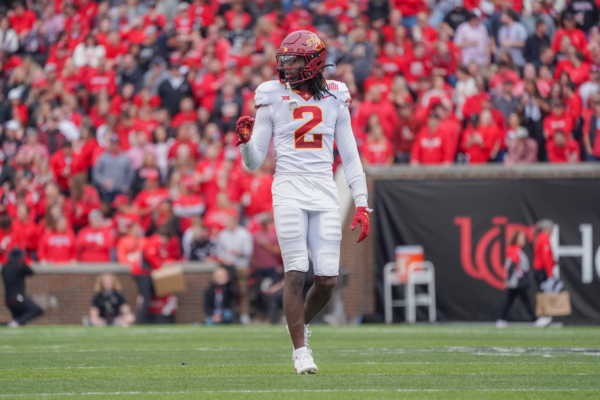COLUMN: The life and death of a real American hero
May 3, 2004
If it came down to it,
I’m glad that I could die
As bullets fly and shred my flesh
And blood flows in my eyes.
If it came down to it,
I’d still stand by my choice
I’d rather die without a thanks
Than live without a voice.
And if it came down to it,
I’d take the fall for you
I got this gift from others’ blood
I’ll give my blood for you.
— Andrew Marshall
When University of Massachusetts graduate student Rene Gonzalez learned that former Arizona Cardinal-turned-Army Ranger Pat Tillman had died in combat in Afghanistan, he voiced some very strong feelings about him in his campus newspaper, the Daily Collegian. He said Tillman was “a ‘pandejo,’ an idiot” for going to fight in a conflict he didn’t have to, and called Tillman “a GI Joe guy who got what was coming to him.” He also said Tillman’s sacrifice “was not heroism, it was prophetic idiocy.”
I’d like to think that about 250 million other Americans, myself included, felt a little differently when we heard the news.
We felt denial. We could hardly believe it when we saw the numbers 1976-2004 underneath Tillman’s name on CNN. Not Tillman, we thought. Not the linebacker from Arizona State who proved that his undersized stature was no match for his oversized heart. Not the freshman who told his college coach that he wouldn’t redshirt because he had things to do with his life. Not the pro who left the NFL and a $3.6 million contract to make $17,316 a year as a specialist in the Army’s 75th Ranger Regiment. Not the man who gave up a dream life to fulfill his heartfelt obligation to serve his country.
But it was. So we just sat there, watching the TV and trying to clear the lumps in our throats that had grown to the size of softballs.
We felt shock. Shock that the one man, the one soldier, the one Ranger we thought was next-to-invincible, was dead. Shock that any bullet or landmine could claim the life of the man who patrolled the wastelands and villages of Afghanistan with the same fearlessness that he patrolled the middle of the football field. Shock that a Pacific 10 Defensive Player of the Year and graduate of the brutal Ranger school could be cut down by mere lead. Shock that for the first time since the Iraqi and Afghani conflicts began, an American that came back in a body bag was someone we could all recognize.
We felt sadness. Although we had heard the names and seen the faces of American casualties on CNN all too many times, this hit us like a ton of bricks. We got that sick feeling in the pit of our stomachs like we get ringing the doorbell on a first date, but we felt none of the optimism. Tears welled up in our eyes like we had just slammed our hands in a car door. We called our friends to tell them the bad news, but they just answered the phone with the simple words, “I know.” We talked about it for a while without being able to really say anything except that it wasn’t fair.
We felt guilt. Guilt because the problems of our everyday lives suddenly seemed insignificant. We felt insignificant. Maybe the same insignificance that Tillman felt when in a post-Sept. 11 interview he said that football “just seems so goddamn — it is — unimportant compared to everything that’s taken place.” The things we as students are so concerned with paled in comparison with what the Tillmans of this world do on a daily basis. Veishea, drink specials and couch ordinances were put into perspective. It became hard to justify complaining about an 8 a.m. lecture or a bad haircut considering the pain that Tillman’s brother and fellow Ranger, Kevin must be feeling. How must his newlywed bride and high school sweetheart feel? What about his parents? Suddenly, the finals we’ve all been dreading don’t seem so terribly important.
We also felt grateful. Grateful to those who are guarding deserts and outposts and imaginary lines across the globe for our safety. Grateful to men in Ranger, SEAL and Pararescue training for undergoing hell on earth just to be deemed worthy of protecting and possibly dying for us. Grateful to the officer candidates, reservists and active duty soldiers on this campus and around the country who give their time and sweat for an often thankless job. We felt grateful, unworthy and humbled that men and women like Tillman are dying for people like us.
Right now, though, we feel inspired. Inspired that selflessness and sacrifice are still words in the vocabulary of Americans. Inspired that heroes will continue to exist. Not the hero who hauls in the big pass or makes the big stop, but real heroes. Most of all, we’re inspired by the hope that Tillman’s legacy will shine so brightly that the darkness of his death will become little more than an afterthought.
And to people like Rene Gonzalez, who display only bitterness and contempt toward those who die preserving their right to voice those feelings, we feel sorry for you.
Andrew Marshall is a junior in journalism and mass communication from Bettendorf.
















